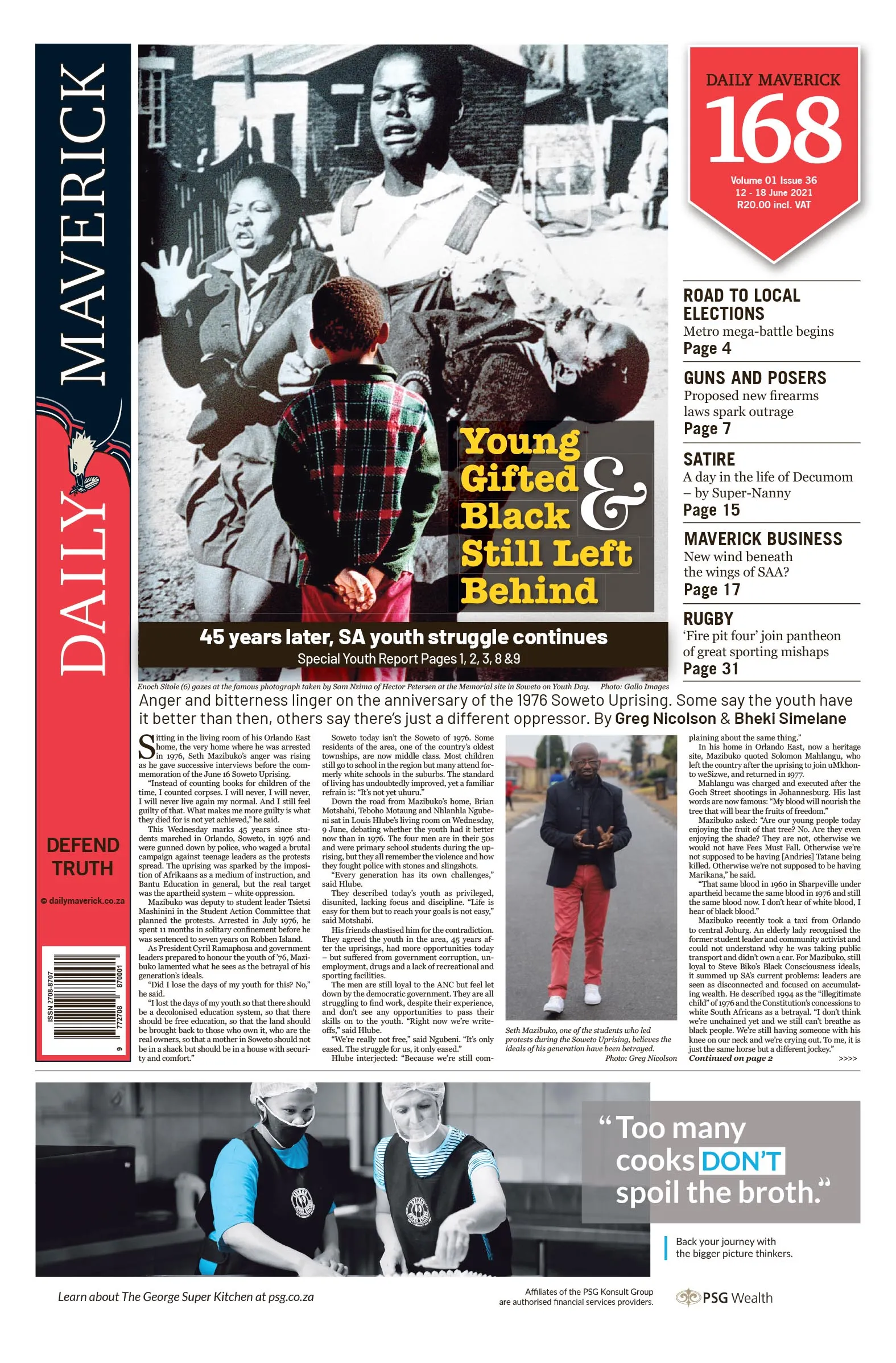First published in the Daily Maverick 168 weekly newspaper.
Apple’s annual software conference is usually a source of great excitement for its fans and enthusiasts. But this year’s Apple Worldwide Developer Conference was unusual in that the biggest affected group aren’t its happy users but the world’s advertisers, whose ability to track people is going to be even more curtailed.
These advertisers are looking on in horror as Apple makes it harder for them to snoop on us. And it’s not just Facebook, which is arguably the biggest offender and therefore the loudest complainer about Apple’s new privacy strategy, which it introduced this year.
Surveillance capitalism has been in full swing for the last decade, where advertising companies you’ve never heard of have been compiling data about us to create profiles that they sell to other advertisers.
This year’s iOS14.5 update introduced a new feature called App Tracking Transparency. It allows iPhone users to prevent apps from tracking them, which Facebook has vociferously complained about, warning it will … whatever.
Facebook, like Google and many others, makes money from knowing as much as possible about us: what sites we visit, what things we read or buy, or comment on. The more they know, the better the profile of us they can use to sell advertising against.
One of the most insidious ways this is done is also through location-tracking – where apps ask, seemingly innocently, to track your physical location. Apple has been steadily shutting that down, and iOS 15, which is due later this year, is going to close even more loopholes.
There is no such thing as anonymised data, as the New York Times has revealed, because it is very easy to work out which person lives at an address and travels a certain way to work or school.
The stakes are high for the advertising industry that has previously had unfettered access to our every move on the internet. They have been doing this in a variety of ways, including cookies and more nefarious means.
“The system reinforces itself by lulling consumers into the myth that it’s just ads,” said Gennie Gebhart, acting activism director at the Electronic Frontier Foundation, which advocates for greater privacy online. “When we say it’s just ads, they are the visible tip of the iceberg of this sprawling data- sharing network. It does not work in any user’s best interest.”
Apple’s iPhone users, no matter how spiteful Android fans are about who stole which feature for which operating system, are a very valuable bunch. All one billion of them, as was recently announced: they are the installed base. These users are also the most likely to spend money – they’ve already coughed up for a premium phone and tend to buy apps, subscribe to streaming music or video, and generally pay for content and services.
Apple will introduce new safeguards in its Mail provider that will prevent the sender from knowing if you’ve opened your email. You didn’t know that was being done, did you? It happens all the time.
It will also prevent advertisers from following us users around the web, using a new “private relay” feature in its iCloud subscription service that routes all data through Apple’s servers and strips away the user’s Internet Protocol address. Apple then sends the request through another service provider, so that Apple doesn’t know the user’s identity and the website they visit.
But, bizarrely, this feature is not being rolled out in China or South Africa, and an odd list of other countries: Belarus, Colombia, Egypt, Kazakhstan, Saudi Arabia, Turkmenistan, Uganda and the Philippines.
China accounts for 15% of Apple’s revenue and is notoriously invasive with privacy. So, seemingly, the other countries are also problematic in terms of access to information. Being lumped with China, Saudi Arabia and other countries with a perilous human- rights record is a stinging slap in our frozen winter faces. This is a sad topic that will need to be investigated.
Apple has finally realised that it has to open its apps up to other users, which means Android and Windows devices will be able to make calls using FaceTime.
Another important privacy announcement is that its voice assistant, Siri, will not be sending voice recordings to its servers – after The Guardian revealed that that supposedly secret voice instructions were being heard by humans hired to check the quality of Siri’s speech recognition.
These are all welcome improvements in making our privacy better. Except for Facebook and its predatory ilk. DM168
This story first appeared in our weekly Daily Maverick 168 newspaper which is available for free to Pick n Pay Smart Shoppers at these Pick n Pay stores.

















 Become an Insider
Become an Insider
Comments - Please login in order to comment.